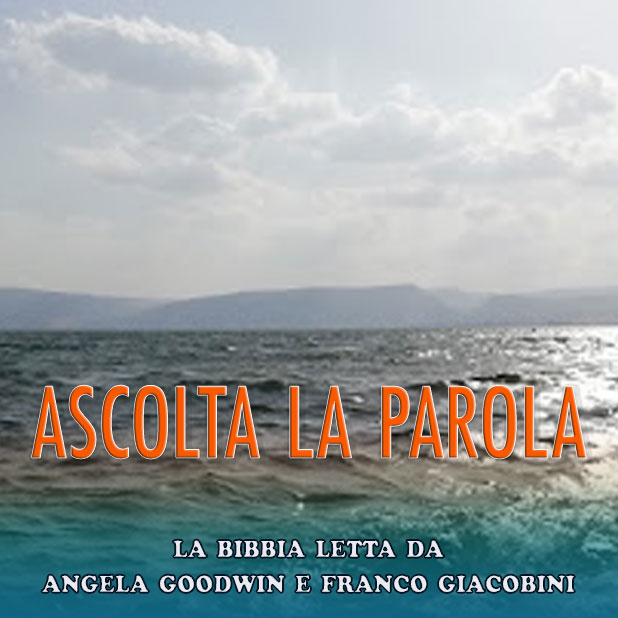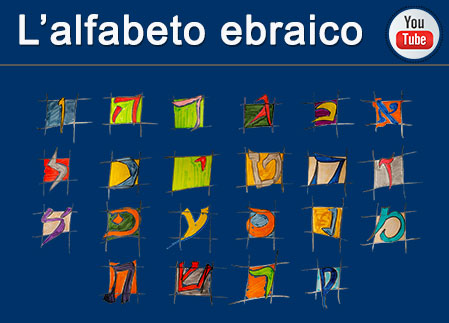Archdiocesan Synod - Cincinnati
Stati Uniti d'America 1971
INTRODUCTIONThe Declaration (Nostra Aetate) of the Second Vatican Council inaugurated a new era in the relations of Christians and Jews. It is with full recognition of our Jewish brothers as people of God that we enter hopefully into this new era, sharing together a common patrimony under the One God, our Father.
The major families of faith share common sources, namely, Sacred Scriptures and certain Traditions. Any unity will be built on the basis of this common heritage. Ecumenical relations and interfaith relations are, of necessity, interdependent. Therefore, even as we continue the task of renewal as members of the Body of Christ, we must reflect upon the roots of our faith in both Scripture and Tradition, born as they were of the Jewish people. The New Testament itself affirms the permanent value of the Sacred Books on which Judaism is founded and from which it is nourished. « Think not that I have come to abolish the law and the prophets; I have not come to abolish them but to fulfill them » (Mt. 5: 17). The Jews « are beloved for the sake of their forefathers. For the gifts and the call of God are irrevocable » (Rom. 11:28-29).
We must remember that before a real bond of understanding can exist between Roman Catholics and Jews, the task of examining our shared history is mandatory. The Nazi holocaust and the establishment of the State of Israel force us to look with compassion and candor on the magnitude of these two events. We are also challenged to examine two thousand years of vilification and persecution which have lain the burden of proving good faith on the Christian's shoulders. For the future, a continued concern for the integrity of the individual conscience as well as a respect for the person should cause all Roman Catholics to abhor any manifestation of anti-semitism, even as it may appear in our society today.
When approaching the Jewish community, Roman Catholics should remember that there is a divergence of views among Jews as there is among Christians. Judaism, too, is experiencing the initial efforts towards an ecumenism of its three major branches. Actually, the distinction between these three is more in degree than in principle. They all authenticate themselves in God and the Jewish tradition. The authenticity of Orthodox Judaism is premised on continued adherence to the full range of Jewish observances as they have been created with preservation being the keynote. Conservative Judaism acknowledges much the same principles as those of Orthodoxy but also recognizes a certain developmental character of tradition and, with great caution and respect, will pass judgement on certain traditional rulings of the past. Reform Judaism recognizes the preservative, the developmental and the innovative as all part of the Jewish tradition. Because of this diversity of views in Judaism itself, Roman Catholics must expect from Jewish congregations a varied range of participation.
Conclusions
1. Implementation of these guidelines should increase our understanding both of Judaism and the Roman Catholic faith, eliminate sources of tension and misunderstanding, initiate dialogues or conversations on different levels, multiply intergroup meetings between Roman Catholics and Jews, and promote cooperative social action.
2. In order to coordinate and support these guidelines, a Committee on Roman Catholic-Jewish Relations should always be part of the Arch-diocesan Commission on Ecumenical and Interfaith Relations.
DIALOGUE — DISCUSSIONS AND CELEBRATIONS
Relations between Christians and Jews have for the most part been no more than a mutual monologue. A true dialogue must now be established. The dialogue, in effect, comprises a favored means for promoting better mutual understanding and a deepening of one's own tradition. The conditions of dialogue are respect for the other as he is and esteem for his faith and religious convictions. Since dialogue, as such, does not have for its goal the making of converts, the intent of conversion is excluded. Great openness of mind, distrust of one's own prejudices, and tact are the indispensable qualities required if one is not, even unconsciously, to offend the other party to the dialogue.
Recent research by experts in biblical and liturgical studies has concluded that in order fully to understand Christian tradition and institutions, it is indispensable to examine Jewish institutions themselves in depth. This is particularly clear in the case of the origin of the sacraments. Christians have adopted the Jewish feasts and prayers, adapting them to the revelation brought by Christ. Their fundamental meaning, however, can be grasped only by constant reference to the original influences.
Conclusions
1. All programs should be jointly planned and developed. There should be a prior consensus on the objectives, scope and confines of these programs, and all encounters should be worked out in a spirit of mutuality.
2. All participants in Roman Catholic-Jewish discussions should be aware of the problem of semantics that evists between Roman Catholics and Jews and should avoid terminology that may be offensive to. the other. Community dialogues at the popular or « grassroots » level among well-prepared participants with the cooperation of the religious leaders of both communities are recommended. In order to initiate and maintain a dialogue between these two communities most effectively, experts in theology, social organization and inter-personal skills should be consulted.
3. Roman Catholics will gain a deeper appreciation of Christ's life and the sacraments he instituted by experiencing and understanding Jewish holidays. The possibility of joint celebration of these holidays should be explored.
4. « Open houses » between congregations and exchange visits of school age children may be a means of promoting good will and understanding between Jews and Roman Catholics.
EDUCATION
Religious instruction should normally diminish the prejudice which has historically marred human relations. In the past, it was often the way in which religious education was presented that fostered prejudices against the Jewish people from one generation to the next. Even present day Roman Catholic methods frequently fail in this respect.
A correct relation to the Jewish people can never come about as long as Roman Catholics feel strangers to the Bible. Belittling ideas about the Jewish people will inevitably live on as long as the preaching of Jesus and the apostles is detached from its historical Jewish background. The history of the Jewish people, before, as well as after Christ, has to be considered in its particular meaning in salvation history. In particular we must remember that:
a. All who are responsible for instruction and education should be informed during their training about the permanent significance of the Jewish people in God's plan for mankind. The history of persecution should not be concealed and the Jewish people should not be treated as though they were non-existent.
b. The Jewish people is not collectively guilty of the Passion and Death of Jesus Christ, nor of the rejection of Jesus as Messiah. The Jewish people is not damned, nor bereft of its election. Their sufferings, dispersion, and persecution are not punishments for the crucifixion or the rejection of Jesus.
c. Much care should be taken in instruction and homilies to right interpretations of biblical readings, especially of those texts which seem to put the Jewish people in an unfavorable light.
Conclusions
1. The following educational programs are highly recommended:
– institutes for priests, rabbis and lay leaders of both communities which will afford the opportunity of hearing scholars of both communities as well as allowing the opportunity to discuss their common heritage and basic differences in group discussions;
– special education programs or in-service training programs for teachers;
– investigation of resource pooling through team-teaching should be initiated in collaboration with Roman Catholic high schools, colleges, and universities and seminaries along with Jewish organizations and seminaries;
– attention should be directed to adult education. Joint study of the Bible may be undertaken with advisors from both the Roman Catholic and Jewish communities.
2. Religious leaders of both communities are reminded that their pulpits offer a powerful means of advancing mutual understanding, friendship, and cooperation.
3. School texts, prayer books and other media should be subject to constant scrutiny in order to avoid any materials which do not accord with the content and spirit of the Vatican Council's teachings. At the same time, an earnest effort should be made to insert those teachings which show Judaism's role in salvation history in a positive light.
COMMON PRAYER
Since Jewish worship is an affirmation of the belief in the one, unique God, as well as a community affirmation, it is considered desirable to bring Jews and Christians together for prayers. Whenever possible and mutually desirable, meeting before God in prayer and silent meditation should be encouraged. It is indicated in particular when dealing with major questions of reparation, reconciliation and in times of persecution.
Conclusions
1. Prepare for these prayer meetings jointly.
2. Use the Hebrew Scripture for these prayers.
3. Choose biblical or prayer texts that are careful to avoid controversial passages.
4. Use formulae not habitually in liturgical use.
COMMUNITY
In consideration of community problems, Christians would do well to remember the Jewish concept of a sort of « consecration » of the universe. Judaism recognizes that man is not only creature but avows that man also cooperates when he acts with God in a continuing creation of the universe.
Remembering that Christ's miracles can be viewed as a kind of social healing and that social involvement is part and parcel of the Jew's ministrations to all his fellow men, Roman Catholics should seek to cooperate with Jews individually and through organizations in order to work toward the solutions of social problems.
Fidelity to the covenant has always been linked to the gift of a land in the Jewish soul and has endured for Jews as the object of an aspiration that Christians should attempt to understand. Over and over, Jews have signified their attachment to the land promised to their ancestors from the days of Abraham. Roman Catholics must attempt to understand and respect the religious significance of this link between the people and the land. The existence of the State of Israel cannot be separated from this perspective. This does not imply any judgement on historical occurrences or on decisions of a purely political order.
Conclusions
1. Roman Catholics should seek to cooperate with Jews in order to coordinate efforts aimed at resolving civic problems as well as cooperate in eradicating anti-Semitism.
2. Roman Catholics should strive to understand the concern of the Jewish community for the State of Israel and should seek to support efforts that will ensure a just and lasting peace in the Holy Land for all concerned.
161 visualizzazioni.
Inserito 01/01/1970
Relazioni Ebraico-Cristiane
Ultime novità nel sito
- 19/04/2020: Articolo - L’enigma della Maddalena
- 23/02/2020: Articolo - Il locus amoenus nelle catacombe ebraiche e cristiane di Roma
- 16/02/2020: Articolo - Il profetismo nel Vicino Oriente antico
- 13/02/2020: Articolo - I Profeti della Cappella Sistina
- 09/02/2020: Articolo - Gerusalemme e la Terra Santa di Israele


